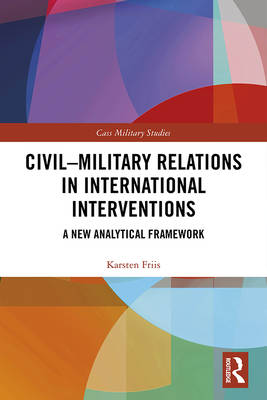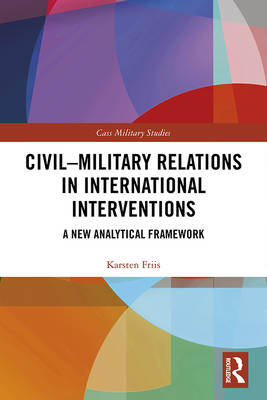
- Afhalen na 1 uur in een winkel met voorraad
- Gratis thuislevering in België
- Ruim aanbod met 7 miljoen producten
- Afhalen na 1 uur in een winkel met voorraad
- Gratis thuislevering in België
- Ruim aanbod met 7 miljoen producten
Omschrijving
This book examines military and civilian actors in international interventions and offers a new analytical framework to apply on such interventions.
While it is frequently claimed that success in international interventions hinges largely on military-civilian coherence, cooperation has proven challenging to achieve in practice. This book examines why this is the case, by analysing various approaches employed by military and civilian actors and discussing the different relationships between the intervening actors and those upon whom they have intervened. The work analyses different military concepts, such as peacekeeping and counterinsurgency, and the often-troubled relationship between the humanitarian and military intervening actors. It presents a new analytical framework to examine these relationships based on identification theory, which illuminates how the interveners represent those they have been deployed to engage, as well as their own identity and role. As such the book offers an enhanced understanding of the challenges related to civil-military cooperation in international interventions, as well as a theoretical contribution to the study of interventions, more generally.
This book will be of much interest to students of international interventions, military studies, peacekeeping, security studies and International Relations.
Specificaties
Betrokkenen
- Auteur(s):
- Uitgeverij:
Inhoud
- Aantal bladzijden:
- 200
- Taal:
- Engels
- Reeks:
Eigenschappen
- Productcode (EAN):
- 9780367356613
- Verschijningsdatum:
- 19/02/2020
- Uitvoering:
- Hardcover
- Formaat:
- Genaaid
- Afmetingen:
- 160 mm x 236 mm
- Gewicht:
- 430 g

Alleen bij Standaard Boekhandel
Beoordelingen
We publiceren alleen reviews die voldoen aan de voorwaarden voor reviews. Bekijk onze voorwaarden voor reviews.












